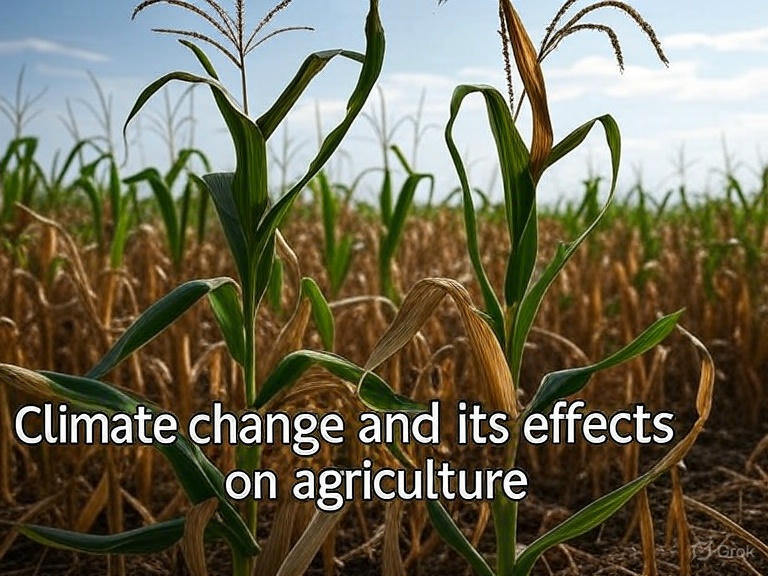Climate Change and Its Effects on Agriculture
Climate change is one of the biggest challenges facing the world today. It refers to long-term changes in temperature, rainfall, and weather patterns. These changes significantly impact agriculture, which is highly dependent on stable climate conditions.
Effects of Climate Change on Agriculture:
- Rising Temperatures 🌡️
- Increased heat stresses crops and livestock, reducing growth and productivity.
- Some crops may fail to mature properly, lowering yields.
- Changes in Rainfall Patterns ☔️🌧️
- Erratic rainfall causes droughts or floods, damaging crops and soil.
- Water scarcity affects irrigation and reduces crop production.
- Increased Frequency of Extreme Weather Events 🌪️🌩️
- Storms, floods, and heatwaves destroy crops and infrastructure.
- Farmers face unpredictable growing seasons.
- Soil Degradation and Erosion 🌱🧴
- Heavy rains and droughts degrade soil quality and fertility.
- Loss of nutrients impacts plant growth and food security.
- Pests and Diseases Spread 🐛🦠
- Warmer climates encourage pest outbreaks and new diseases.
- Crop losses increase, threatening food supplies.
- Reduced Crop Yields 🍚🌾
- Overall productivity drops due to heat stress and water shortages.
- Important staple crops like wheat, rice, and maize are affected.
- Impact on Livestock 🐄🐓
- Heat stress affects animal health, reproduction, and milk/meat production.
- Scarcity of water and fodder worsens livestock productivity.
- Food Security Risks 🍽️🚨
- Decreased agricultural output threatens food availability and prices.
- Vulnerable populations suffer from malnutrition and hunger.
- Adaptation and Mitigation Challenges ⚙️🌿
- Farmers need new techniques like drought-resistant crops and sustainable practices.
- Investment in climate-smart agriculture is crucial.
Conclusion:
Climate change poses a serious threat to agriculture, which in turn affects food security and livelihoods worldwide. Immediate action is needed to adapt farming practices and reduce greenhouse gas emissions to protect our future food supply.
